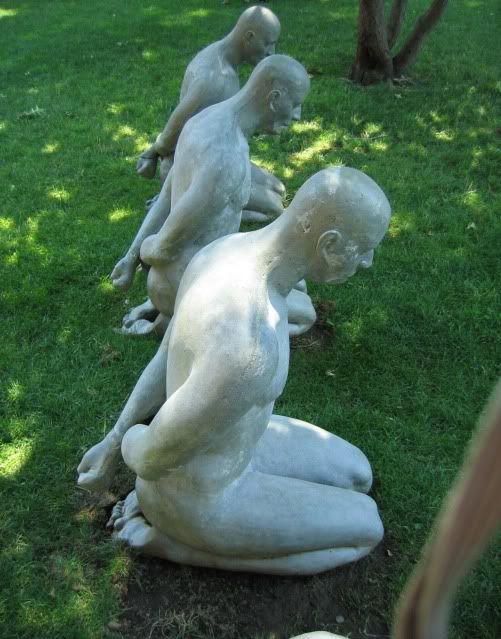 Many years ago, I traveled to Honduras. I was the guest of some Americans who invited me there to teach several seminars. I love to travel and one the best parts of travel - in my opinion - is trying local foods and experiencing local customs. Well, imagine my disappointment when our first meal in Honduras was at an American restaurant chain. It was the same menu as the chain's restaurant in the United States, except it was written in Spanish. Before the week was over, I ate several meals at American franchise restaurant chains. They were all very familiar to me and there was absolutely no challenge to try new foods, experience new customs, or even the struggle to communicate with the wait staff.
Many years ago, I traveled to Honduras. I was the guest of some Americans who invited me there to teach several seminars. I love to travel and one the best parts of travel - in my opinion - is trying local foods and experiencing local customs. Well, imagine my disappointment when our first meal in Honduras was at an American restaurant chain. It was the same menu as the chain's restaurant in the United States, except it was written in Spanish. Before the week was over, I ate several meals at American franchise restaurant chains. They were all very familiar to me and there was absolutely no challenge to try new foods, experience new customs, or even the struggle to communicate with the wait staff.I finally asked if we could please go to a local, mom-and-pop owned restaurant or cantina, which we did. As soon as we walked in, I was in a completely unfamiliar setting. I did not know what anything was on the menu, I struggled to communicate, and the setting was extremely different from what I was used to. I felt as if I didn't belong because I was in a very different setting that I was unaccustomed to. But I found that as I made an effort to understand and be understood, that both the workers and the customers were happy to help me find my way around. I stretched to try out my very rusty Spanish, but somehow managed to convey what I wanted to eat. I've never had such wonderful beans, rice, and tortillas in my life, but it required an effort on my part. I was a fish out of water in this small, grungy cantina - a place that was completely unfamiliar to me.
This sense of unfamiliarity is one reason that abuse survivors hesitate to try new approaches to life and relationships. For most of us, we are most familiar with dysfunction. The way we eat, relate, work, parent, partner, and live has been dysfunctional for a long time. So long, in fact, that we may not know any other way. As unhealthy as it is, your "normal" may be extremely self-defeating and ineffective. At the same time – that’s what you know. You know the menu, the language, the setting, and the customs. That's what feels natural and effortless.
When you start that transition to healthy choices, appropriate boundaries, and adequate self-care, you're suddenly in uncharted territory. You're not familiar with the language, customs, or settings. Abuse survivors often struggle when they feel powerless and believe me - when you're trying out "healthy" for the first time - your unfamiliarity with it can cause you to feel very out-of-control, even powerless.
You may actually panic and revert back to what you know best, rather than ride out that unfamiliarity until you become more comfortable. It takes a while to grow accustomed to functional living. It also takes time for the people in your life to adjust to your new way of living, behaving, and thinking. Of course, if you're getting healthier, it may actually feel threatening to the dysfunctional people in your life who might not want you to grow. That's when the panic can really set in if you're not careful.
Trying anything new brings with it a certain level of anxiety and uncertainty. That's normal. If you recognize that this sense of unfamiliarity is a normal part of the healthy growth process, then you've already conquered it. It is what it is. When you know that, you can also develop strategies to stabilize yourself if you panic or feel like a foreigner.
You know, the best meal I had in Honduras on that trip was as that grungy cantina. It was worth the effort and the uncomfortable feeling of not understanding anything. As I pushed through those obstacles, I found there were people willing to help me, unknown tastes and experiences that turned out to be wonderful, and a deep sense of personal pride that I went beyond the familiar - in my case the American restaurant chain - to really have an encounter with the very culture I wanted to be a part of. You'll have those same moments in your journey from familiar dysfunction to healthy choices. While it may not be your "normal" at first, that too will change over time - and you'll feel a deep sense of personal accomplishment and pride when it happens.








